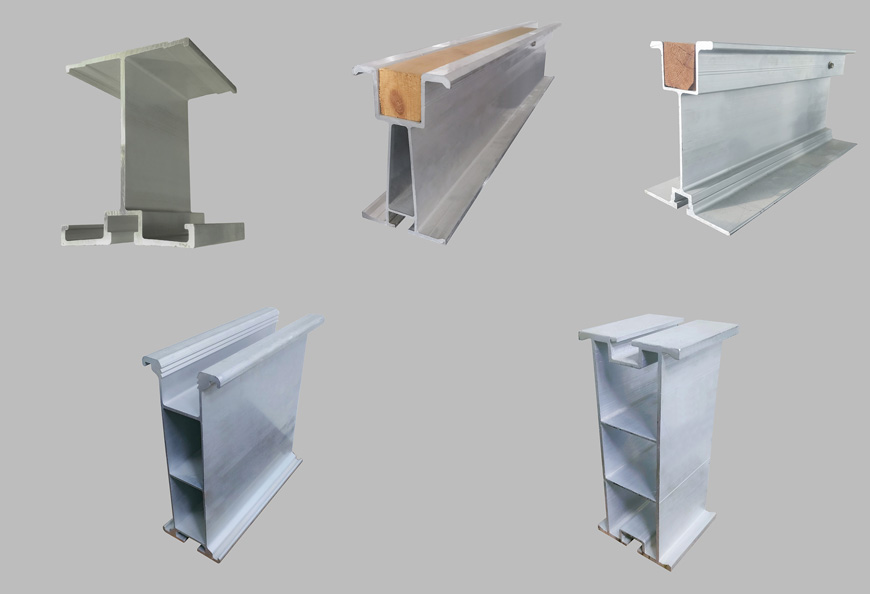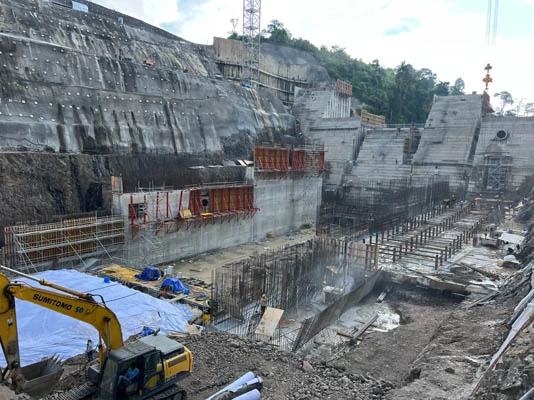The Brazil construction market size was $120.5 billion in 2022. The market is projected to attain an AAGR of more than 2% during 2024-2027. Investments in industrial, transport, renewable energy, housing, and oil sectors will aid the industry's growth over the forecast period.

The key sectors in the Brazil construction market are commercial construction, industrial construction, infrastructure construction, energy and utilities construction, institutional construction, and residential construction.
Commercial construction: The project types in this sector include leisure and hospitality buildings, office buildings, outdoor leisure facilities, retail buildings, and other commercial construction. The factors driving the commercial sector's growth over the forecast period include investments in football stadiums, office, and data center projects.
Industrial construction: The project types in this sector include chemical and pharmaceutical plants, manufacturing plants, metal and material production and processing plants, and waste processing plants. Brazil's target of manufacturing a total of 1 million hybrid (HEV) and battery (BEV) electric vehicles by 2030 will support the sector's growth over the forecast period.
Infrastructure construction: The project types in this sector include rail infrastructure, road infrastructure, and other infrastructure projects. Public and private sector investments in infrastructure projects will improve regional connectivity and contribute to the sector's output in the forecast period.
Energy and utilities construction: The project types in this sector include electricity and power, oil and gas, telecommunications, sewage infrastructure, and water infrastructure. The sector growth is attributed to the government's focus on the development of energy infrastructure, with special attention to the renewable energy infrastructure.
Institutional construction: The project types in this sector include educational buildings, healthcare buildings, institutional buildings, research facilities, and religious buildings. Investments in the health and education sectors will boost the institutional construction sector's growth during the forecast period.
Residential construction: The project types in this sector include single-family housing and multi-family housing. The government's initiatives to reduce the country's housing deficit and guarantee the right to affordable housing to its citizens will support the residential construction sector's growth in the coming years.
The US construction market size was valued at $2.1 trillion in 2022. The market is projected to achieve an AAGR of 3% during 2024-2027. The growth is attributed to the rising investments in the energy, transportation, housing, and manufacturing sectors.

The key sectors in the US construction market are commercial construction, industrial construction, infrastructure construction, energy and utilities construction, institutional construction, and residential construction.
Infrastructure construction: The project types in this sector include rail infrastructure, road infrastructure, and other infrastructure projects. The rise in execution of infrastructure programs by Federal and regional governments to expand transportation networks across the country will support the sector’s growth during the forecast period.
Residential construction: The project types in this sector include single-family housing and multi-family housing. The residential construction industry will grow over the forecast period owing to the government's investments in building affordable housing units to address the current housing deficit of more than six million homes.
Energy and utilities construction: The project types in this sector include electricity and power, oil and gas, telecommunications, sewage infrastructure, and water infrastructure. Investments to increase renewable projects to meet the country’s goal of having 100% clean power by 2035 and cutting 2005 climate pollution levels in half by 2030, will drive the sector growth between 2024 and 2027.
Commercial construction: The project types in this sector include leisure and hospitality buildings, office buildings, outdoor leisure facilities, retail buildings, and other commercial construction. Factors such as an increase in tourism activities by 2027 and rising investments in data center and retail building projects will drive the commercial sector’s growth over the forecast period.
Industrial construction: The project types in this sector include chemical and pharmaceutical plants, manufacturing plants, metal and material production and processing plants, and waste processing plants. The government’s investments in stimulus and support programs, including CHIPS, the Science Act, and the IRA will drive the sector’s growth during the forecast period.
Institutional construction: The project types in this sector include educational buildings, healthcare buildings, institutional buildings, research facilities, and religious buildings. Factors such as investment in healthcare and education infrastructure will fuel the sector's growth in the coming years.
The South Africa construction market size was $25.5 billion in 2022. The market is projected to achieve an AAGR of more than 3% during 2024-2027. The growth is attributed to investments in transport, energy, industrial, and housing projects. The government plans to increase the share of renewable energy in its total electricity mix from 11% in 2019 to 41% by 2030 and decommission 8-12GW of coal-fired power plants by the end of 2030.

The key sectors in the South Africa construction market are commercial construction, industrial construction, infrastructure construction, energy and utilities construction, institutional construction, and residential construction. In 2022, the infrastructure construction sector was followed by residential construction.
Infrastructure construction: The project types in this sector include rail infrastructure, road infrastructure, and other infrastructure projects. Investment to expand the country's transport infrastructure networks will support the sector growth.
Residential construction: The project types in this sector include single-family housing and multi-family housing. The government’s focus on boosting the supply of social housing units will support the sector growth during the forecast period.
Energy and utilities construction: The project types in this sector include electricity and power, oil and gas, telecommunications, sewage infrastructure, and water infrastructure. Investments in long-term renewable energy projects and the government's goal of increasing the share of renewable energy in its total electricity mix from 11% in 2019 to 41% by 2030 will drive the sector’s demand during the projected period.
Commercial construction: The project types in this sector include leisure and hospitality buildings, office buildings, outdoor leisure facilities, retail buildings, and other commercial construction. Developments in leisure and hospitality, office, data centre, and retail building projects will drive the commercial sector's growth over the forecast period.
Industrial construction: The project types in this sector include chemical and pharmaceutical plants, manufacturing plants, metal and material production and processing plants, and waste processing plants. Factors such as a gradual rebound in manufacturing and export activities, coupled with investments in the establishment of industrial parks, and the government's focus on boosting the automotive industry will drive the sector's growth during the forecast period.
Institutional construction: The project types in this sector include educational buildings, healthcare buildings, institutional buildings, research facilities, and religious buildings. Infrastructure developments in the healthcare and educational sectors will fuel the growth of this sector in the coming years.





